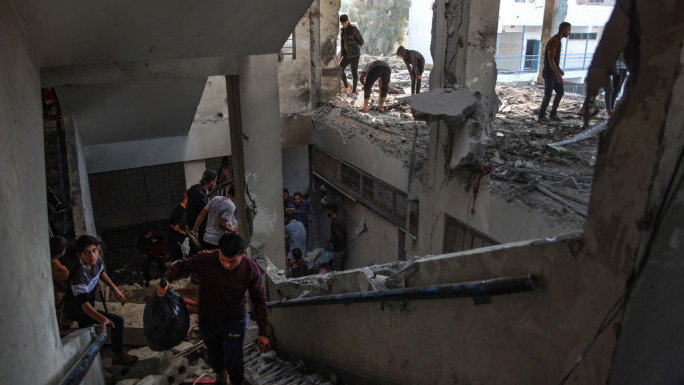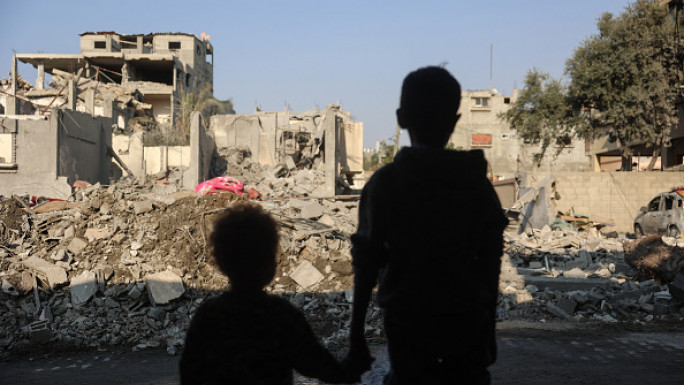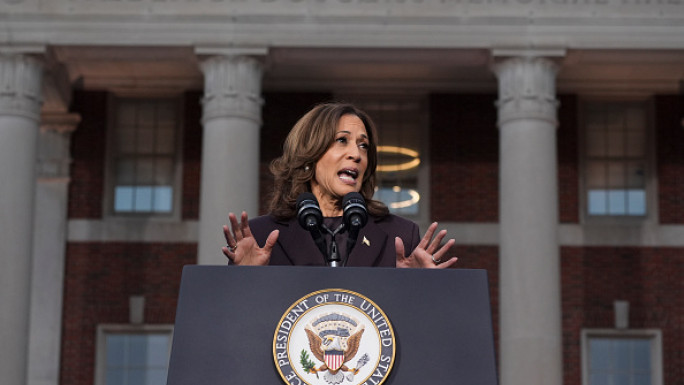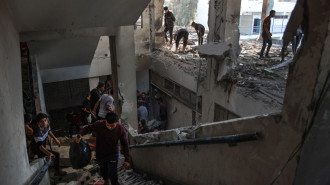Yemen investigates 'double Beirut's amount' of ammonium nitrate at Aden port
Chairman of Aden Port Muhammed Amzarba held a meeting with a government committee, including military leaders from the Saudi-led coalition, to discuss and verify the reports on the nature of the material stored in some 130 containers.
The investigation came despite an official statement by Aden Port which denied the existence of ammonium nitrate at the facility, which according to reports, amounts to double the amount that caused the disastrous Beirut port explosion last week.
Samples taken from the containers were taken and investigated by the committee to determine whether they were dangerous.
The move came after prominent journalists from the southern coastal city revealed the presence of tonnes of ammonium nitrate in 130 4ft containers which had allegedly been stored for at least three years.
Twitter Post
|
Editor-in-chief of Aden Alghad, Fathi bin Lazraq, who first revealed the reports, told The New Arab he had obtained documents to prove the explosive material was stored in the containers at the port for years after authorities stopped it from entering into the country.
Similar action was taken by Iraqi authorities who on Sunday removed "dangerous materials" from Baghdad's International Airport.
The material was relocated to the Military Engineering Directorate at the ministry of defence, according to a statement published on Sunday.
"Highly dangerous materials was transported safely from the air cargo section at Baghdad International Airport to their safe destination in the stores of the Military Engineering Directorate," the Border Ports Authority in Iraq announced.
The statement fell short of naming or describing the nature of the material, however confirmed the transfer was made as a result of a direct order from Prime Minister Mustafa Al-Kadhimi.
The PM "ordered the formation of an urgent committee to detect high-risk materials at all border crossings and to take all measures to remove them from residential areas and gatherings", the statement added.
The move came just five days after a deadly explosion rocked the port of Beirut on Tuesday, killing over 150 people and wounding thousands more.
The explosion was believed to have been caused by a fire that ignited a 2,750-ton stockpile of explosive ammonium nitrate. The material had been stored at the port since 2013 with few safeguards despite numerous warnings of the danger.
The result was a disaster Lebanese blame squarely on their leadership’s corruption and neglect.
Losses from the blast are estimated to be between $10 billion to $15 billion, and nearly 300,000 people were left homeless in the immediate aftermath.
On Sunday, world leaders and international organisations pledged nearly $300 million in emergency humanitarian aid to Beirut in the wake of the explosion, but warned that no money for rebuilding the capital would be made available until Lebanese authorities commit themselves to the political and economic reforms demanded by the people.
The massive blast on August 4 has brought a new wave of public outrage at the government and Lebanon’s long entrenched ruling class.
Protests were planned outside the government headquarters to coincide with the Cabinet meeting after large demonstrations over the weekend that saw clashes with security forces firing tear gas at protesters.
Follow us on Facebook, Twitter and Instagram to stay connected


![President Pezeshkian has denounced Israel's attacks on Lebanon [Getty]](/sites/default/files/styles/image_684x385/public/2173482924.jpeg?h=a5f2f23a&itok=q3evVtko)



 Follow the Middle East's top stories in English at The New Arab on Google News
Follow the Middle East's top stories in English at The New Arab on Google News


![President Pezeshkian has denounced Israel's attacks on Lebanon [Getty]](/sites/default/files/styles/image_330x185/public/2173482924.jpeg?h=a5f2f23a&itok=S2wzLy-W)